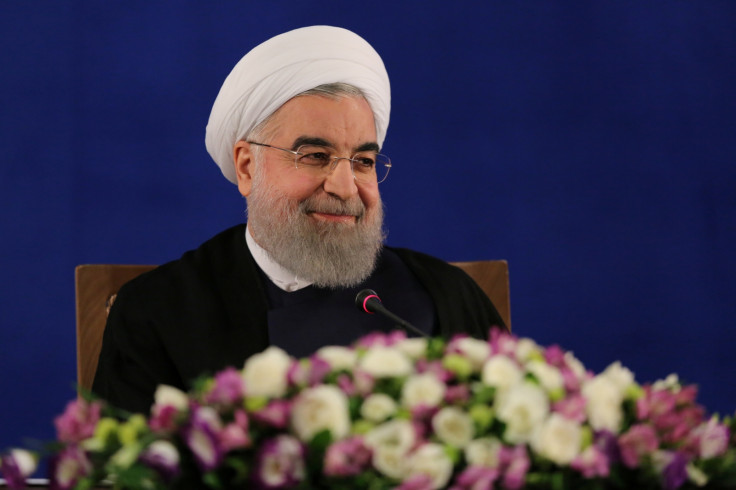Saudi Arabia created Isis and unleashed it on the Middle East, says Iran President Hassan Rouhani
Iranian leader defends the ballistic missile launch against Saudi Arabia, which was intercepted near Riyadh airport without casualties.
Iranian President Hassan Rouhani went on the offensive against Saudi Arabia over the recent missile interception in Riyadh. While defending the missile launch carried out by Houthi insurgents from Yemen, the Iranian leader blamed the ultra-conservative Sunni kingdom for the emergence of the Islamic State (Isis) in the volatile Middle East.
A Houthi rebel group claimed responsibility for firing a ballistic missile on 4 November following which the Saudi regime mounted air strikes in Yemen. Shia majority Iran, a strong backer of Shia Houthis, condemned Saudi Arabia's aggression.
Speaking at a cabinet meeting on Wednesday, 9 November, Rouhani asked: "How should the Yemeni nation respond to bombardment on such a scale? They are told not to use their own weapons. Well, stop the bombing and see whether or not the Yemeni nation responds positively. You do not allow delivery of medicine, food and UN assistance to the Yemenis. Is what you are doing reasonable and Islamic?"
Saudi Arabia has been engaged in the Yemen conflict, one of the worst man-made disasters in recent decades, targeting Houthi rebels for nearly three years. Riyadh, which is already witnessing a massive shake-up inside the regime, said it holds Iran directly responsible for the latest missile launch and labelled it an "act of war".
Responding to Saudi Arabia's stance, Rouhani said: "Why are you hostile towards the people of Syria and Iraq? Why did you create Daesh [terrorist group] and unleashed it on the people in the region?" making a thinly veiled reference to the Sunni ideology of both Saudi Arabia and the Isis.
He added that Iran would be inclined to cooperate even with Saudi Arabia if it stops aligning with countries like the US. "You are mistaken if you think Iran is not your friend, but the US and Israel are. This mentality is a strategic mistake and miscalculation.
"There is no way other than brotherhood, friendship and helping each other."
Both Iran and Saudi Arabia, two regional powerhouses with clashing ideologies, share a fractious relationship due to a power struggle over a series of religio-political issues such as the way Islam is interpreted, the Islamic world's leadership and oil exports.








